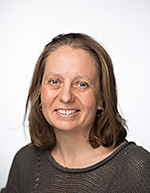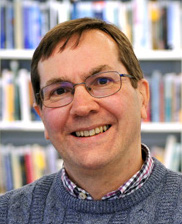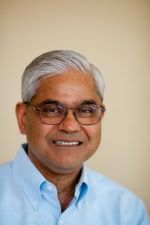30 Years of Ensemble Forecasting and Symposium for Prof. Tim Palmer
Speaker biographies
Roberto Buizza (Embassy of Italy)
 Roberto Buizza is serving as Scientific Attaché’ at the Italian Embassy in London, where he supports the work of the Italian diplomacy and leads the embassy scientific activities. He is Full Professor in Physics at ‘Scuola Superiore Sant’Anna’ of Pisa, and Honorary Research Fellow at Imperial College Grantham Institute for Climate Change. He has a degree in Physics, a PhD in Mathematics, and a Master in Business Administration. From 1991 to 2018 he worked at the European Centre for Medium-Range Weather Forecasts, where he was a key developer of its prediction systems, and served as Head of the Predictability Division and Lead Scientist. Since 2018 he has been working at ‘Scuola Superiore Sant’Anna’ of Pisa, where he led a research centre on climate change. He is an expert in numerical weather prediction, Earth-system modelling, ensemble methods and predictability, and climate science.
Roberto Buizza is serving as Scientific Attaché’ at the Italian Embassy in London, where he supports the work of the Italian diplomacy and leads the embassy scientific activities. He is Full Professor in Physics at ‘Scuola Superiore Sant’Anna’ of Pisa, and Honorary Research Fellow at Imperial College Grantham Institute for Climate Change. He has a degree in Physics, a PhD in Mathematics, and a Master in Business Administration. From 1991 to 2018 he worked at the European Centre for Medium-Range Weather Forecasts, where he was a key developer of its prediction systems, and served as Head of the Predictability Division and Lead Scientist. Since 2018 he has been working at ‘Scuola Superiore Sant’Anna’ of Pisa, where he led a research centre on climate change. He is an expert in numerical weather prediction, Earth-system modelling, ensemble methods and predictability, and climate science.
Susanna Corti (ISAC and CNR)
 Susanna Corti is Director of Research at the Italian National Research Council” (CNR) and coordinator of the "Global Change" unit in the Earth system science and environmental technologies Department. “Global Change” research activities include the characterization of Earth's climate and of its past, present and future variability (model reconstructions, predictions and scenarios), the estimate of environmental risks induced by climate change, and the analysis of the fundamental processes of climate dynamics. During her career she worked at the European Centre for Medium-range Weather Forecasts (ECMWF) as consultant in the Predictability Section of the Research Department in the framework of two EU-funded projects: “Short-term climate variability” and THOR (Thermohaline Overturning at Risk?). She contributed to the IPCC WG1 (Fifth Assessment Report) and she is Lead Author for the IPCC WG1 AR6, Chapter 4. She has been Principal Investigator (PI) for CNR of EU-funded projects, such as PRIMAVERA (PRocess-based climate sIMulation: AdVances in high-resolution modelling and European climate Risk Assessment), and currently she is PI for the European project TiPES (Tipping Points in the Earth System). She is executive Editor of "Climate Dynamics", member of the Joint Scientific Committee (JSC) of the World Climate Research Programme (WCRP) and member of the Scientific Advisory Committee of ECMWF.
Susanna Corti is Director of Research at the Italian National Research Council” (CNR) and coordinator of the "Global Change" unit in the Earth system science and environmental technologies Department. “Global Change” research activities include the characterization of Earth's climate and of its past, present and future variability (model reconstructions, predictions and scenarios), the estimate of environmental risks induced by climate change, and the analysis of the fundamental processes of climate dynamics. During her career she worked at the European Centre for Medium-range Weather Forecasts (ECMWF) as consultant in the Predictability Section of the Research Department in the framework of two EU-funded projects: “Short-term climate variability” and THOR (Thermohaline Overturning at Risk?). She contributed to the IPCC WG1 (Fifth Assessment Report) and she is Lead Author for the IPCC WG1 AR6, Chapter 4. She has been Principal Investigator (PI) for CNR of EU-funded projects, such as PRIMAVERA (PRocess-based climate sIMulation: AdVances in high-resolution modelling and European climate Risk Assessment), and currently she is PI for the European project TiPES (Tipping Points in the Earth System). She is executive Editor of "Climate Dynamics", member of the Joint Scientific Committee (JSC) of the World Climate Research Programme (WCRP) and member of the Scientific Advisory Committee of ECMWF.
Peter Düben (ECMWF)
 Peter is the Head of the Earth System Modelling Section at ECMWF. Previously, he was the AI and Machine Learning Coordinator at ECMWF, holding a University Research Fellowship of the Royal Society. Naturally, Peter's research interests are covering many aspects of model developments, high-performance computing, machine learning and the use of reduced numerical precision for weather and climate predictions. Peter has also a strong interest in the quantification of uncertainty of predictions for chaotic systems. Peter is coordinator of the MAELSTROM EuroHPC project and work-package leader of the ESiWACE2/3 H2020 projects. Before moving to ECMWF, Peter has written his PhD thesis at the Max Planck Institute for Meteorology and has worked as PostDoc with Tim Palmer at the University of Oxford.
Peter is the Head of the Earth System Modelling Section at ECMWF. Previously, he was the AI and Machine Learning Coordinator at ECMWF, holding a University Research Fellowship of the Royal Society. Naturally, Peter's research interests are covering many aspects of model developments, high-performance computing, machine learning and the use of reduced numerical precision for weather and climate predictions. Peter has also a strong interest in the quantification of uncertainty of predictions for chaotic systems. Peter is coordinator of the MAELSTROM EuroHPC project and work-package leader of the ESiWACE2/3 H2020 projects. Before moving to ECMWF, Peter has written his PhD thesis at the Max Planck Institute for Meteorology and has worked as PostDoc with Tim Palmer at the University of Oxford.
Laura Ferranti (ECMWF)
 Laura is currently an ECMWF consultant. She worked at ECMWF in both Research and Forecast Departments. She has many years of experience working in diagnostics and evaluation of ensemble forecasts with focus on extended and seasonal time range. Her activity included the assessment of the operational forecasts and developments of products. She contributed to the Sub-seasonal to Seasonal prediction (S2S) project.
Laura is currently an ECMWF consultant. She worked at ECMWF in both Research and Forecast Departments. She has many years of experience working in diagnostics and evaluation of ensemble forecasts with focus on extended and seasonal time range. Her activity included the assessment of the operational forecasts and developments of products. She contributed to the Sub-seasonal to Seasonal prediction (S2S) project.
After completing a degree course in Physics in Italy, she joined ECMWF in the mid-eighties, to study atmospheric predictability on long timescales within the team lead by Tim Palmer. During this period, she completed her PhD at the University of Reading. Laura served as member of the Working Group on Subseasonal to Interdecadal Prediction (WGSIP) and is a member of the WMO Expert team on Operational Climate Prediction System.
Isla Finney (Lake Street Consulting)
 Isla Finney is the director of Lake Street Consulting Ltd, a small weather consultancy firm which aims to help clients from a variety of sectors interpret weather forecasts, and their associated uncertainty, to enable them to work with the weather.
Isla Finney is the director of Lake Street Consulting Ltd, a small weather consultancy firm which aims to help clients from a variety of sectors interpret weather forecasts, and their associated uncertainty, to enable them to work with the weather.
Isla has a rare combination of a research background to postdoctoral fellowship level and over 2 decades’ international commercial business experience. Her commercial experience includes working as the meteorologist on energy trading desks in the City, and trading her own energy book at a hedge fund. She has close working relationships with key academics, as well as in industry, and enjoys cross-pollination of ideas.
Isla was fortunate to be able to run some ensemble experiments on ECMWF and NCEP global NWP models during her doctoral research - thanks to Tim Palmer and Zoltan Toth respectively. It was during this exposure to operational forecasts that she started to realise both how much useful information ensembles contained.
Franco Molteni (ECMWF)
 Franco Molteni started working on ensemble predictions at ECMWF in the mid 1980's, first as a visiting scientist and then as a staff member in the Diagnostics and Predictability Section. In 1994 he completed a PhD course in atmospheric dynamics at the Imperial College (Univ. London). From 1999 to 2006 he was a co-leader of the Earth System Physics Section at the International Centre for Theoretical Physics (ICTP) in Trieste, Italy. He then returned to ECMWF as Head of the Seasonal Forecast Section, and subsequently of the Ensemble Prediction Section of the Research Department. He retired from a full-time position in 2018, and is currently a scientific consultant for the Copernicus Climate Change Service at ECMWF and the Earth System Physics Section at ICTP. In addition to ensemble prediction, Franco's scientific interests include climate variability from sub-seasonal to decadal scales, intermediate-complexity models of the atmosphere and ocean, dynamics of non-linear systems and weather regimes.
Franco Molteni started working on ensemble predictions at ECMWF in the mid 1980's, first as a visiting scientist and then as a staff member in the Diagnostics and Predictability Section. In 1994 he completed a PhD course in atmospheric dynamics at the Imperial College (Univ. London). From 1999 to 2006 he was a co-leader of the Earth System Physics Section at the International Centre for Theoretical Physics (ICTP) in Trieste, Italy. He then returned to ECMWF as Head of the Seasonal Forecast Section, and subsequently of the Ensemble Prediction Section of the Research Department. He retired from a full-time position in 2018, and is currently a scientific consultant for the Copernicus Climate Change Service at ECMWF and the Earth System Physics Section at ICTP. In addition to ensemble prediction, Franco's scientific interests include climate variability from sub-seasonal to decadal scales, intermediate-complexity models of the atmosphere and ocean, dynamics of non-linear systems and weather regimes.
James Murphy (Met Office)
 James is a Met Office Science Fellow in ensemble climate change projections. His early career involved pioneering work with Tim Palmer on dynamical extended-range forecasting to a month ahead, carried out in the Synoptic Climatology branch at the Met Office. Subsequently James moved into the climate change field, leading the development of systems designed to quantify uncertainties in regional climate changes by combining several climate model ensembles. He also led a team that developed the first initialised ensemble predictions to a decade ahead. James was a lead author in the IPCC’s Fourth Assessment Report and the UK’s second climate change risk assessment. Much of his recent work has been focused on the development of UK national climate scenarios.
James is a Met Office Science Fellow in ensemble climate change projections. His early career involved pioneering work with Tim Palmer on dynamical extended-range forecasting to a month ahead, carried out in the Synoptic Climatology branch at the Met Office. Subsequently James moved into the climate change field, leading the development of systems designed to quantify uncertainties in regional climate changes by combining several climate model ensembles. He also led a team that developed the first initialised ensemble predictions to a decade ahead. James was a lead author in the IPCC’s Fourth Assessment Report and the UK’s second climate change risk assessment. Much of his recent work has been focused on the development of UK national climate scenarios.
David Richardson (ECMWF)
 David Richardson is the former Head of Evaluation at ECMWF. He has over 30 years’ experience in weather forecasting research and operations, including use and monitoring of the global observing system and development of numerical weather prediction models. His work on ensemble prediction includes the configuration of ensembles to represent the uncertainties in the initial conditions and modelling systems, development of products and tools for forecast users, and evaluation of forecast performance. He has served on several WMO expert teams and is currently chair of the WMO Standing Committee on Data Processing for Applied Earth System Modelling, Prediction & Projection (SC-ESMP).
David Richardson is the former Head of Evaluation at ECMWF. He has over 30 years’ experience in weather forecasting research and operations, including use and monitoring of the global observing system and development of numerical weather prediction models. His work on ensemble prediction includes the configuration of ensembles to represent the uncertainties in the initial conditions and modelling systems, development of products and tools for forecast users, and evaluation of forecast performance. He has served on several WMO expert teams and is currently chair of the WMO Standing Committee on Data Processing for Applied Earth System Modelling, Prediction & Projection (SC-ESMP).
Jagadish Shukla (COLA and George Mason University)
Jagadish Shukla is a Distinguished University Professor and Managing Director of the Center for Ocean-Land-Atmosphere Studies (COLA) at George Mason University. He received his Ph.D. from Banaras Hindu University in India, and Sc.D. from the Massachusetts Institute of Technology.
His early research showed that in spite of the chaotic nature of the climate system and the limits of the predictability of daily weather, it is possible to predict monthly and seasonal averages of climate because of the influence of the slowly varying ocean and land boundary conditions and their interactions with the atmosphere. His research led to the notion of predictability in the midst of chaos and established a scientific basis for dynamical seasonal prediction. His research also showed the importance of land surface processes in climate variability and predictability. His proposal and demonstration of the feasibility of retrospective analysis of past atmospheric observations using state of the art data assimilation systems has now become an important component of climate diagnostic research. His other scientific contributions include dynamics and predictability of monsoons, Amazon deforestation, desertification and reforestation in Sahel, and seamless prediction of weather and climate. He has been involved with a number of national and international research programs and creation of research institutions.
He remains deeply connected with the village of his birth in India where he has established Gandhi College for improving the educational status and general well-being of young women in that rural area.
Liz Stephens (University of Reading and Red Cross Red Crescent Climate Centre)
 Liz is an Associate Professor in Climate Risks and Resilience at the Department of Meteorology, University of Reading where she holds a joint post with the Red Cross Red Crescent Climate Centre (RCCC). Liz leads interdisciplinary research into early warning early action for natural hazards, drawing heavily on expertise in hydrometeorological hazards, forecasts and uncertainty.
Liz is an Associate Professor in Climate Risks and Resilience at the Department of Meteorology, University of Reading where she holds a joint post with the Red Cross Red Crescent Climate Centre (RCCC). Liz leads interdisciplinary research into early warning early action for natural hazards, drawing heavily on expertise in hydrometeorological hazards, forecasts and uncertainty.
Within RCCC Liz provides strategic and practical support around the use of forecasts for anticipatory humanitarian action globally. From 2016-2022 Liz was the Principal Investigator of the £2 million Forecasts for Anticipatory Humanitarian Action (FATHUM) research project, funded by NERC / FCDO. Prior to joining the University of Reading, Liz followed her PhD studies at the University of Bristol with postdoc work at the University of Oxford with Tim Palmer.
Peter Webster (Georgia Tech)
 Peter Webster’s research focuses on the dynamics of the tropical system with emphasis on monsoon circulations. Following a sabbatical year at ECMWF, spent principally with Tim Palmer and group, these interests expanded into forecasting the probability of flooding in trans-boundary rivers of South Asia. The scheme is still operational in Bangladesh. Webster is currently involved in a collaborative effort between CFAN and Precision Agriculture for Development (PxD) to apply rendered ECMWF probabilistic products in support of small holder agriculture in India and Pakistan. It is hoped that these “forecasts for farmers” projects in “rain-fed” areas may serve as templates to similar zones around the globe. Webster has received a number of rewards including the Charney and Rossby awards from the AMS, the International Award from the AGU, the Mason Award from the RMetSoc and the Prince Sultan Bin Abdulaziz Creativity Prize for Water. He is an Honorary Fellow of the RMetSoc.
Peter Webster’s research focuses on the dynamics of the tropical system with emphasis on monsoon circulations. Following a sabbatical year at ECMWF, spent principally with Tim Palmer and group, these interests expanded into forecasting the probability of flooding in trans-boundary rivers of South Asia. The scheme is still operational in Bangladesh. Webster is currently involved in a collaborative effort between CFAN and Precision Agriculture for Development (PxD) to apply rendered ECMWF probabilistic products in support of small holder agriculture in India and Pakistan. It is hoped that these “forecasts for farmers” projects in “rain-fed” areas may serve as templates to similar zones around the globe. Webster has received a number of rewards including the Charney and Rossby awards from the AMS, the International Award from the AGU, the Mason Award from the RMetSoc and the Prince Sultan Bin Abdulaziz Creativity Prize for Water. He is an Honorary Fellow of the RMetSoc.
